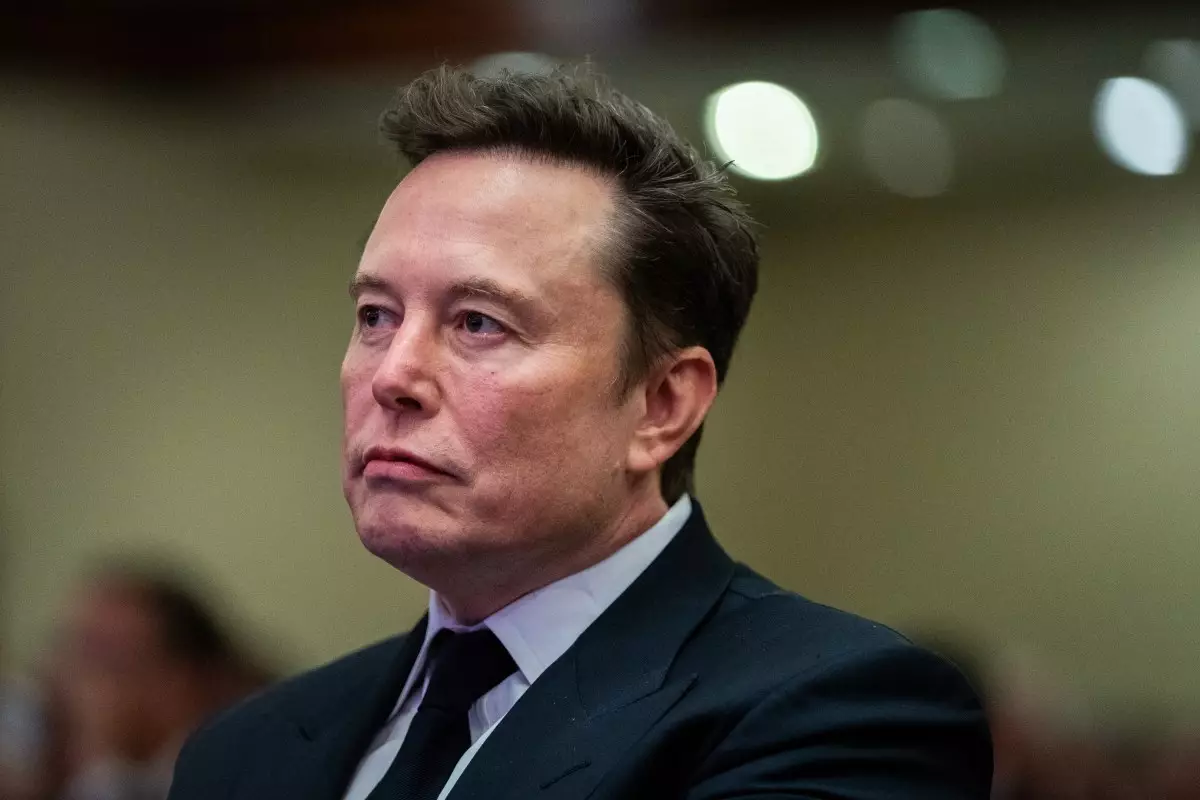Elon Musk, a prominent figure in the tech world, is no stranger to controversy, but his recent legal actions against OpenAI, alongside several top executives from the company and its main investor, Microsoft, raise significant questions about competition, ethics, and the future framework of artificial intelligence development. This unprecedented preliminary injunction highlights the evolving dynamics between major tech enterprises and raises concerns about the impact of their actions on competition in the rapidly-growing AI industry.
In a move that has captured the attention of the tech industry and legal experts alike, Musk’s attorneys filed for a preliminary injunction against OpenAI in a California court. The allegations stem from accusations that OpenAI and its partners are engaging in unethical and potentially illegal business practices that hinder competition in the AI landscape. Musk, a co-founder of OpenAI who has since distanced himself from the organization due to ideological disagreements, claims that the organization’s shift from a nonprofit model compromises its foundational mission and favors self-serving practices over broader societal benefits.
At the core of the injunction request is the concern that OpenAI has discouraged investment in Musk’s AI venture, xAI. According to Musk’s legal team, this behavior not only prevents fair competition but also represents a monopolistic strategy that could reshape the technological landscape unfavorably for smaller companies. The implications of such control exerted by major players like OpenAI and Microsoft could stifle innovation and lead to a concentration of power that sidesteps ethical considerations.
Musk’s legal filings accuse OpenAI and key individuals—such as its CEO Sam Altman and President Greg Brockman—of various forms of misconduct. The allegations include:
1. **Discouraging Competition**: Musk states that OpenAI has pressured investors to refrain from funding competing AI initiatives like xAI. This tactic, if substantiated, not only infringes upon fair competitive practices but also raises questions about the overall integrity of the investment landscape in tech.
2. **Unauthorized Information Sharing**: The injunction argues that OpenAI improperly benefits from sensitive information obtained through its partnership with Microsoft. As these companies collaborate closely, the exchange of proprietary data could lead to distorted market advantages, thereby hindering new entrants in the AI sector.
3. **Shifting Governance Objectives**: Musk’s counsel expresses concern that OpenAI’s transition from a nonprofit to a for-profit entity undermines its original charter and jeopardizes public trust. This evolution has also reportedly involved transferring valuable intellectual property without proper oversight, raising significant ethical concerns.
4. **Self-Dealing**: The motion claims that various members of the board, including Altman, may have entered into agreements that enrich personal financial interests at the expense of OpenAI’s mission. Specific examples, such as the selection of payment processing partners in which Altman has financial stakes, exemplify an apparent conflict of interest that worsens competition.
Musk’s attorneys argue that if the motion for an injunction is not granted, there may be “irreparable harm” to both his interests and that of potential investors and competitors within the AI ecosystem. They assert that halting OpenAI’s current trajectory is essential to preserve a semblance of ethical considerations in AI development. This perspective highlights the growing concern around the monopolization of advanced technologies and the moral imperative that should govern their development.
Moreover, the legal action reflects larger debates regarding the ethical responsibilities of tech companies. As AI increasingly shapes industries and societies, the push for responsible innovation becomes crucial. The importance of transparency, fair competition, and ethical practices cannot be overstated, especially as new advances are made in this field.
This lawsuit not only captures the turbulent relationship between Musk and OpenAI but also signals a shift in the regulatory landscape surrounding technology startups. Should Musk prevail, the ripple effects could resonate through the industry, prompting other entities to evaluate their business practices in relation to governance, ethics, and competition.
The unfolding legal battle between Musk and OpenAI epitomizes the tensions inherent in a rapidly changing technological landscape driven by AI. As Musk seeks to assert control over what he perceives as an abandonment of ethical responsibility by OpenAI, the case raises essential questions about the responsibilities of AI organizations in fostering competitive markets while adhering to their foundational missions. As the case progresses, stakeholders in the field will be eagerly watching to see how it influences the future of artificial intelligence development and regulation.

